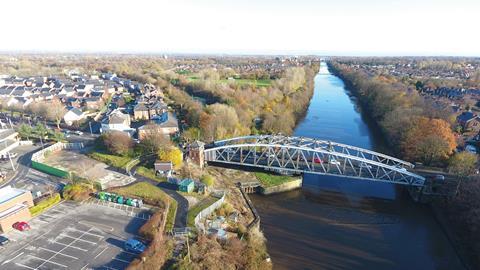The Supreme Court’s ruling that a canal owner can seek redress for unauthorised discharges of foul water by a sewage utility could open the floodgates to ‘thousands’ of similar claims
The city fathers and engineers who built the Manchester Ship Canal – the last grand product of the heroic age of Victorian engineering – were no strangers to legal controversy. But the implications of this week’s Supreme Court ruling in The Manchester Ship Canal Company Ltd v United Utilities Water Ltd would have astonished them.
They would not be surprised by seven justices’ unanimous verdict: that the canal’s owner is entitled to seek redress for unauthorised discharges of foul water by a sewage utility. What would set the Victorian entrepreneurs spinning like Parsons turbines in their graves was the 14 years it took for the initial claim to reach the apex court, which has only cleared the way for substantive proceedings. That and the apparent inertia which led to the discharges in the first place.
In the appeal brought by the Manchester Ship Canal Company, the Supreme Court was asked to decide whether actions for nuisance or trespass over pollution not caused by negligence or deliberate misconduct were barred by the legislative scheme created to underpin privatisation, specifically the 1991 Water Industry Act. The High Court and Court of Appeal had both backed United Utilities’ case that it had inherited an implied statutory power to discharge water and treated effluent into private watercourses without the owners’ consent. The company has some 100 outfalls from which foul water is designed to be discharged into the 36-mile canal when the capacity of the system is exceeded.
However in lead judgment, Lord Reed, president and Lord Hodge, deputy president, said the lower courts had misread the 2003 judgment in Marcic v Thames Water Utilities, in which the House of Lords rejected a claim for damages over repeated flooding to a property from an overloaded sewerage system. This was interpreted as excluding claims whenever the underlying cause of the nuisance was the inadequacy of the infrastructure. However that decision ‘has no bearing on the present case’, the Supreme Court justices found.
Overturning the lower courts’ rulings, the Supreme Court justices held that a common law remedy against nuisance survives the provisions of the 1991 act, which contains ‘no express ouster of all common law causes of action and remedies to protect the enjoyment of the property’.
They concluded: ‘If the discharges constitute a trespass (a matter on which we express no view), United Utilities is the body responsible for the commission of that tort. If the discharges constitute a nuisance, that is something which United Utilities has caused or adopted, since its sewerage system is designed in a way that deliberately involves the discharge of effluent into the canal when the hydraulic capacity of the system is exceeded.’ Lord Lloyd-Jones, Lord Burrows, Lord Stephens, Lady Rose and Lord Richards agreed.
'Owners of waterways may now consider taking action against sewerage undertakers for polluting water, and it is very possible that we could now see an increase in this type of legal claim'
Andrew Ross, Charles Russell Speechlys
United Utilities said it was ‘considering the implications of the ruling’. The company had claimed that to permit private law claims would conflict with the regulatory regime applicable to sewerage infrastructure, under which decisions about the need for investment are made by regulators and not the courts. This now seems set for change, with lawyers predicting an avalanche of claims bolstered by public fury about the pollution of seas and waterways.
Emma Montlake, co-executive director of the Environmental Law Foundation, which intervened in the case with the backing of the Good Law Project, said the outcome ‘has the potential to be a game-changer for communities up and down the land’.
‘Owners of waterways may now consider taking action against sewerage undertakers for polluting water, and it is very possible that we could now see an increase in this type of legal claim,’ said Andrew Ross, partner at Charles Russell Speechlys.
Environmental campaigner and one-time pop star Feargal Sharkey predicted ‘thousands of claims’ by fishing clubs, swimmers and riparian owners against water companies.
One line in the Supreme Court judgment will resonate in particular. The whole mess ‘could be avoided if United Utilities invested in improved infrastructure and treatment processes’, Lords Reed and Hodge observed. But where the investment will come from is a difficult question, not least because the threat of endless lawsuits will make it harder for water companies to raise equity. And the UK’s recent record in undertaking large-scale publicly funded infrastructure projects has been dismal.
A final note. Despite vigorous opposition from the port of Liverpool, which the Manchester Ship Canal was designed to sideline, the waterway opened in January 1894, just 12 years after its shareholders’ first meeting. The past is a very different country.
This article is now closed for comment.





































8 Readers' comments